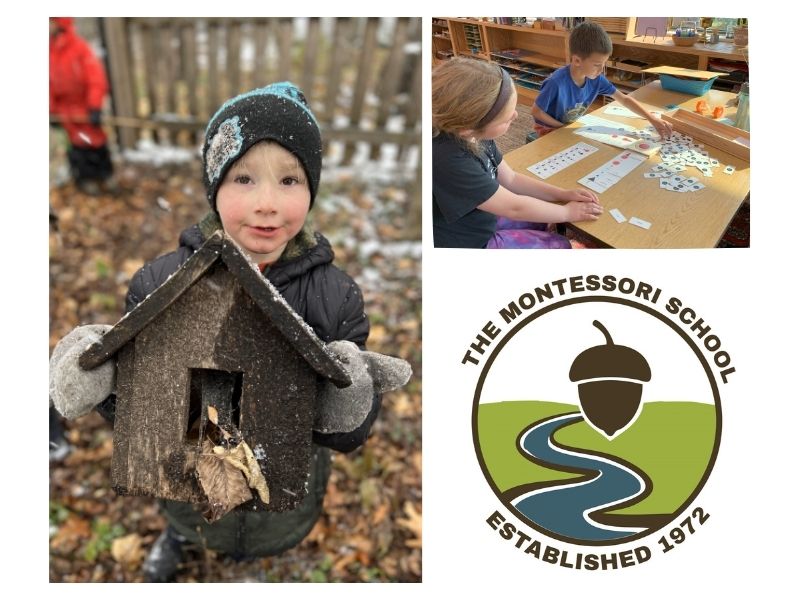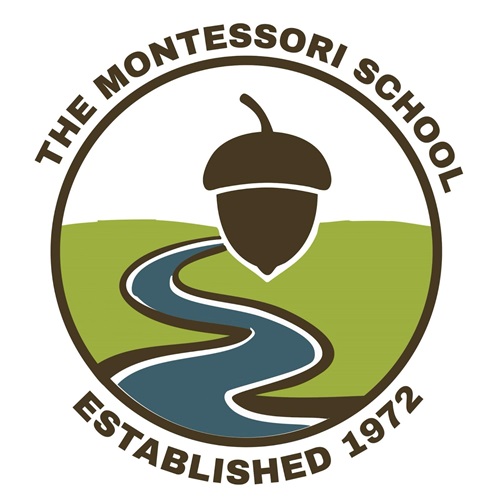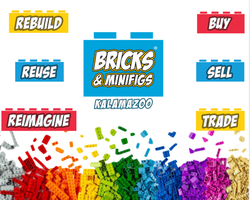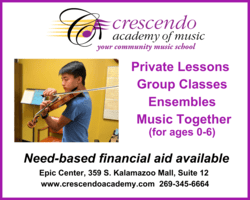The Montessori School Provides Holistic Education For Ages 3-12
Teaching a child is never a one-size-fits-all solution. Each child learns differently and requires more than simply academic support.
Where can you find the right school to address traditional “hard” skills like math and “soft” skills like conflict resolution and personal responsibility?
Enter Montessori education, known for its unique approach to learning.
The Montessori School in Kalamazoo (TMS) is committed to educating the whole child—intellectually, socially, emotionally, and physically.
Located near downtown Kalamazoo, this non-profit, private education institution has provided authentic, high-quality, and comprehensive Montessori education to children ages 3-12 since 1972.
Read on for information about TMS’s offerings for preschool and elementary-aged children and why its holistic approach to learning may be the perfect fit for your family.
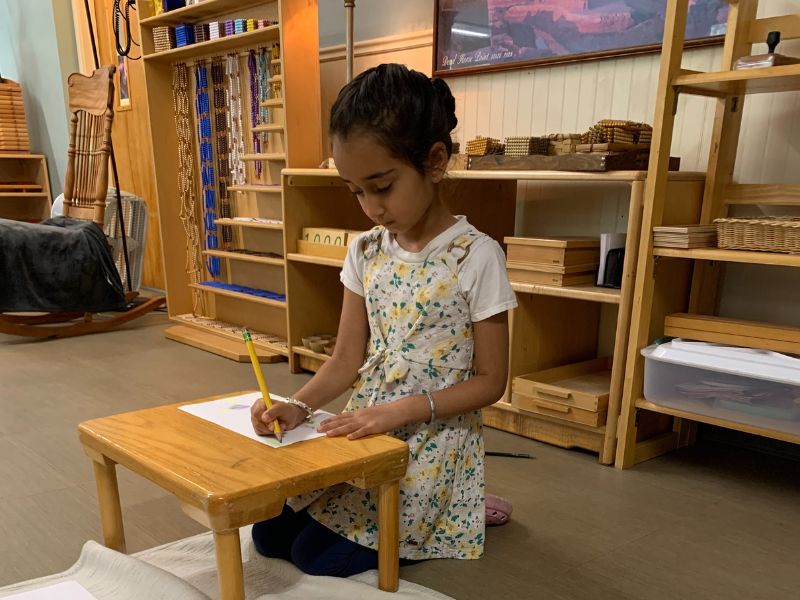
| The Montessori School 710 Howard Street, Kalamazoo, MI 49008 |
In this article
• School Mission
• Preschool Students
• Elementary Students
• Sixth Grade Internship Program
• How a Montessori Education is Different
• Contact
The Montessori School’s Mission
The Montessori School’s mission is to provide an inclusive environment that inspires children to love learning, create, and make the world better.
The Montessori Preschool Fosters Independence & Exploration
Montessori education begins with a deep respect for children’s natural curiosity.
The Montessori School creates an environment that encourages self-directed discovery, which helps children develop independence, concentration, and a love of learning.
TMS preschoolers’ growth is supported through thoughtful classroom design, engagement in practical life activities and working with their peers.
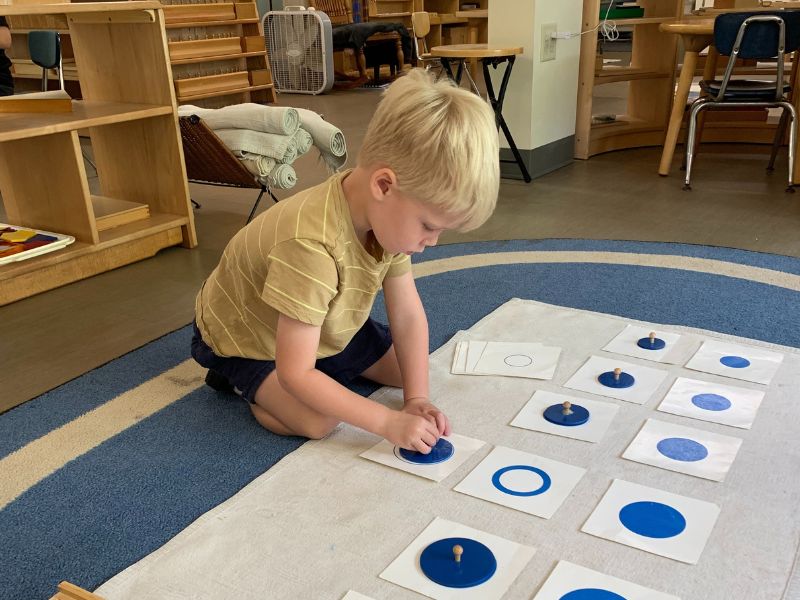
Classroom Design: Preschool Learning Areas
supports problem-solving skills, critical thinking & autonomy
The Montessori preschool classroom is divided into specific learning areas:
- Practical Life
- Sensorial
- Language
- Mathematics
- Cultural Studies
Children move freely among activities, with teachers or “guides” providing assistance only when necessary.
Practical Life Activities
support fine motor skills, coordination & self-reliance
TMS preschoolers engage in practical life activities, including pouring, sweeping and buttoning.
These activities help children learn order, responsibilities and caring for one’s environment.
Social Development
supports emotional intelligence & communication skills
The Montessori School supports social development through group work and collaboration.
Children learn to negotiate, share, and resolve peer conflicts.
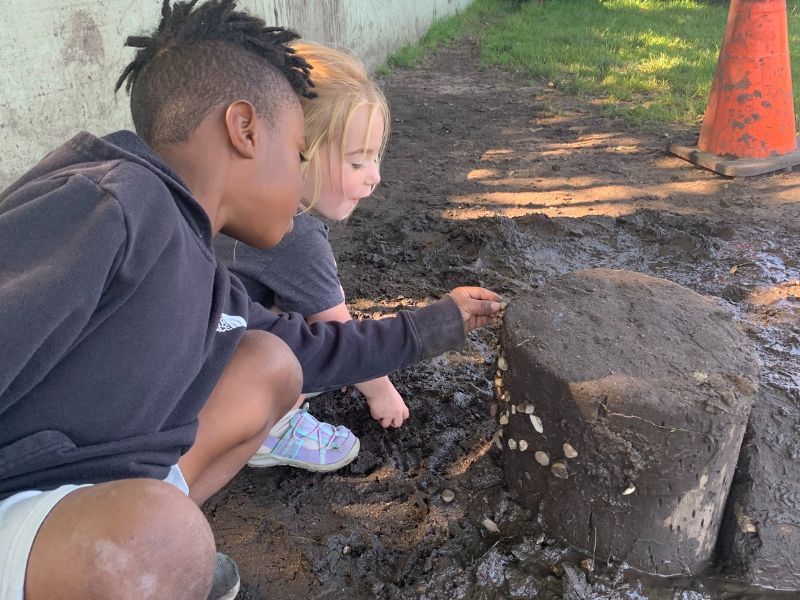
TMS Elementary Students Become Lifelong Learners
When TMS students transition from preschool to the Montessori elementary program, they move towards more structured learning.
Although elementary schoolers learn more advanced and abstract concepts, the guiding principles of Montessori—self-directed learning, respect for the child’s developmental needs, and hands-on engagement—remain the curriculum’s foundation.
Elementary students thrive at The Montessori School through social and emotional development, interdisciplinary learning and cosmic education.

Interdisciplinary Learning
supports making connections among different subjects & integrating concepts
A hallmark of the Montessori elementary experience is the interdisciplinary approach to learning.
Rather than teaching subjects independently, students learn mathematics, science, geography, history, and language through thematic units.
For example, a study of the solar system would include:
- Math (calculating distances and sizes)
- Science (learning about planets and orbits)
- Art (drawing the planets)
This approach provides students with a more in-depth and enriching learning experience.
Social & Emotional Development
supports mutual respect, personal responsibility & conflict resolution
As with preschoolers, social and emotional development remains a priority for The Montessori School’s team.
Children are encouraged to collaborate with peers in group projects, presentations, and research.
The mixed-age classrooms (with children spanning several grade levels) provide the ideal environment for peer mentoring, leadership development, and fostering empathy.
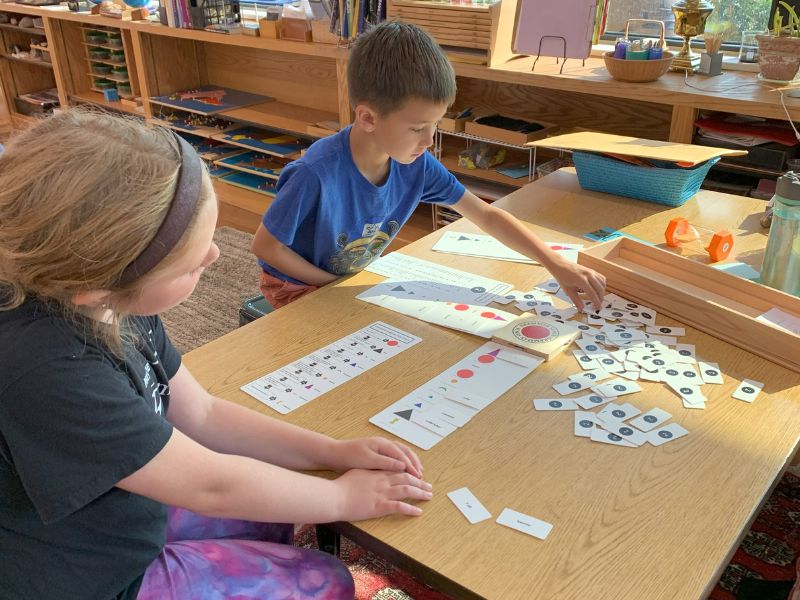
What is Cosmic Education?
Montessori educators emphasize “cosmic education,” a philosophy that helps children understand their place in the world and their interconnectedness with others.
This curriculum inspires wonder and curiosity about the universe and humanity’s role.
Children learn facts and the deeper stories behind human history, culture, and the natural world.
The Sixth Grade Internship Program
supports civic responsibility, community involvement & career interests
Sixth grade students have the unique opportunity to participate in a three-month internship program. This step marks the culmination of their Montessori journey and serves as a bridge to adolescence.
Each student chooses their area of interest, such as law, IT, veterinary sciences, trades or arts and is matched with a local business. Students learn professional responsibilities and gain practical experience while applying their academics in the real world.
Sixth graders are also encouraged to take on leadership roles within The Montessori School through peer mentorships, leading group discussions and organizing school events.

What Makes a Montessori Education Different
Six ways in which Montessori education differs from traditional schooling:
1 – Child-Centered Learning: In Montessori classrooms, the child is the center of the learning process. The curriculum is flexible and can respond to each child’s needs, interests and abilities.
2 – Respect for Developmental Stages: Materials and activities are tailored to support the developmental needs of children of all ages, allowing children to learn at their own pace and according to their abilities.
3 – Mixed-Age Classrooms: Montessori classrooms typically include children of varying ages. This mixed-age setup allows younger students to learn from older peers and fosters mentoring skills among older students.
4 – Hands-On, Experiential Learning: Children engage with concrete objects that help them understand abstract concepts, making learning more meaningful and memorable.
5 – Focus on Social and Emotional Growth: Emotional intelligence and interpersonal skills are as important as academic knowledge in a Montessori education.
6 – Long-Term Vision: By the time a student finishes the sixth grade, they are not just well-versed in academic subjects—they are confident and prepared to meet real world challenges.
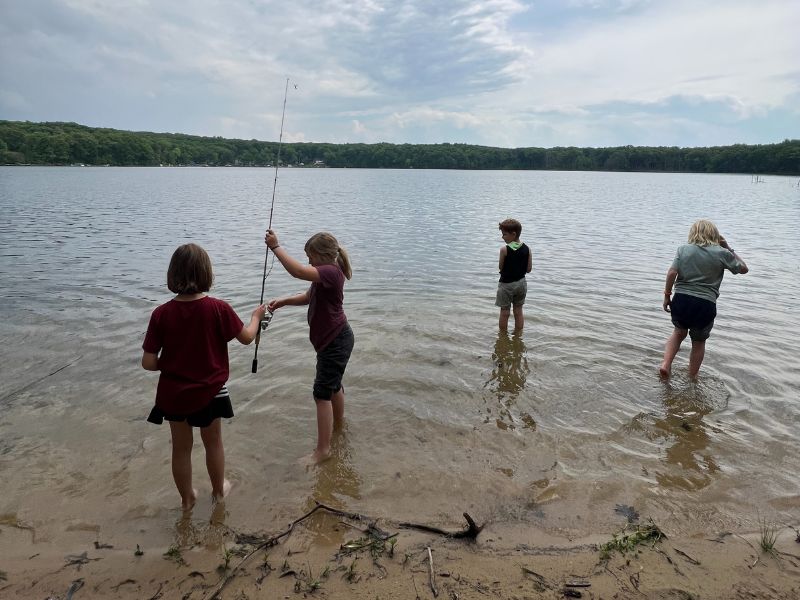
Why You Should Consider The Montessori School
Montessori education provides a unique and comprehensive approach that nurtures every aspect of a child’s development.
From preschool through sixth grade, The Montessori School in Kalamazoo creates an environment where children learn to think independently, work collaboratively, and develop a lifelong love of learning.
Contact The Montessori School to learn more.
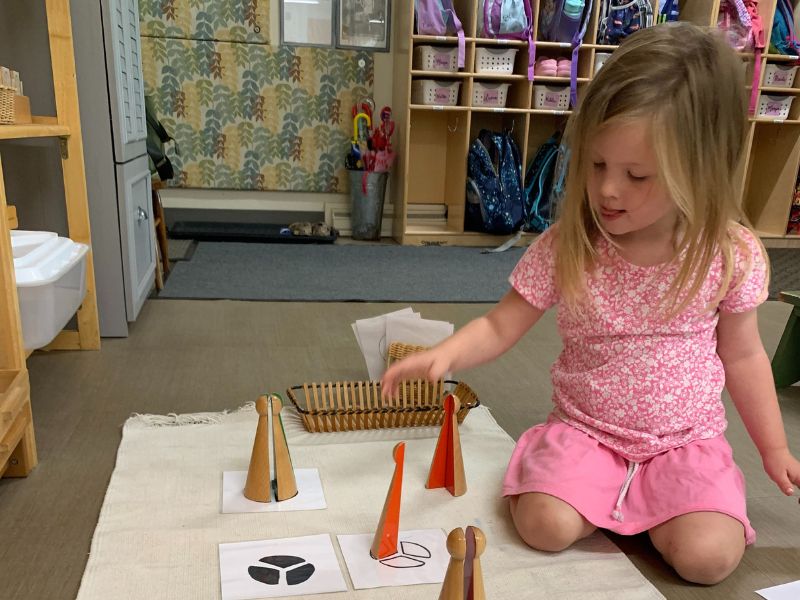
Learn More About The Montessori School
The Montessori School is excited to welcome new families.
To learn more about the gifts a Montessori education can offer your child, visit The Montessori School’s website.
You can also reach them by phone (269-349-3248) or email (inquiry@themontessorischool.org).

